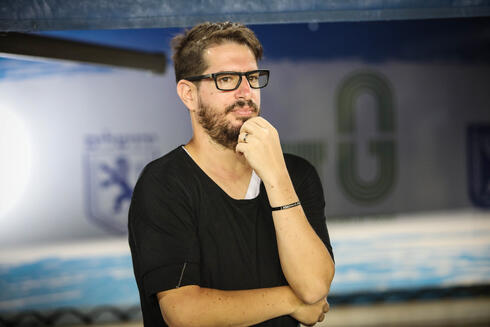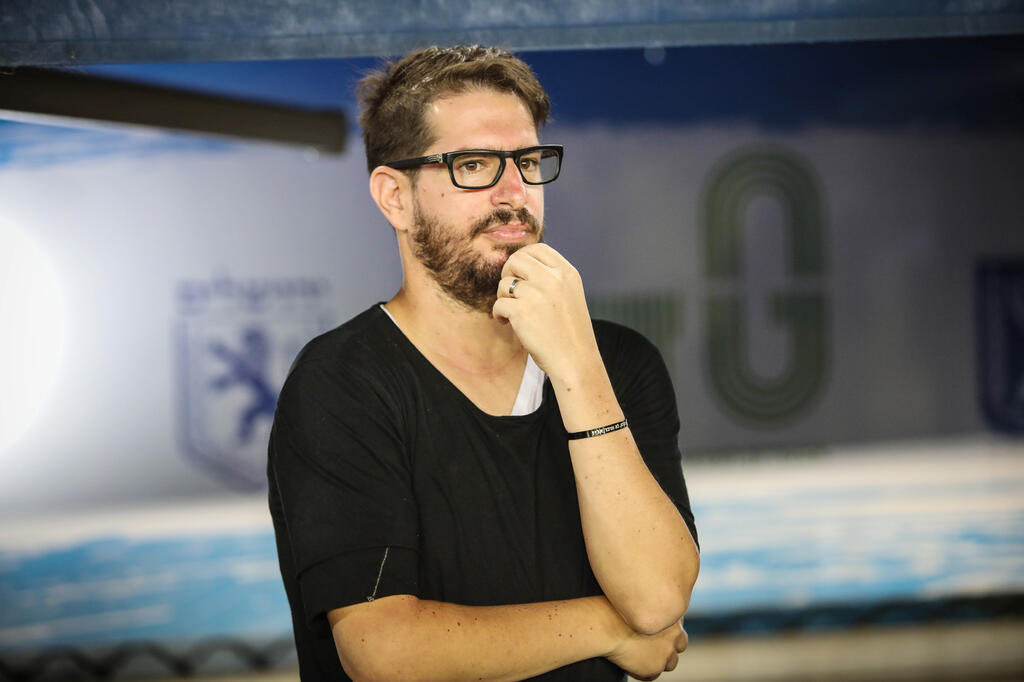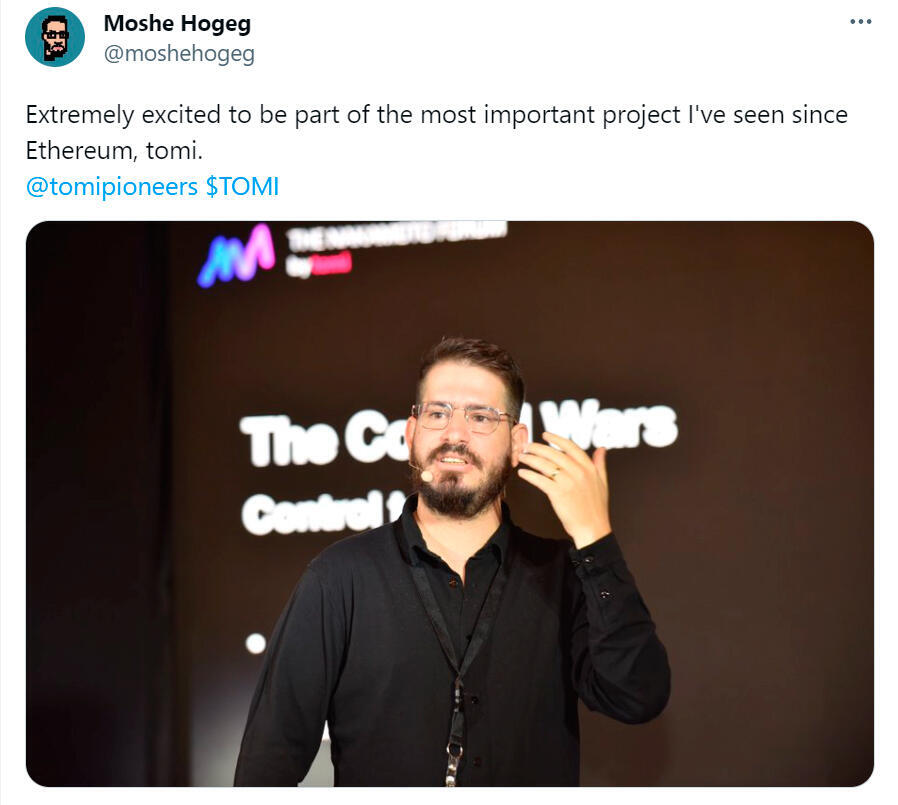
Moshe Hogeg returns to crypto business with Tomi while he awaits decision on fraud charges
Hogeg, who was arrested about a year and a half ago, among other things, on suspicion of defrauding crypto investors of hundreds of millions of dollars, revealed last week at a conference in Marrakech that he is part of the team behind cryptocurrency Tomi
About a year and a half after his publicized arrest, among other things, on suspicion of defrauding crypto investors of hundreds of millions of dollars, Moshe Hoggeg has returned to the cryptocurrency business.
Last week, he led and organized a conference in Marrakesh, Morocco to promote a new crypto coin called "Tomi." According to a source connected to the conference, Rani Zim, the owner of Psagot mutual funds, was at the event, as well as Barak Abramov, the owner of the Beitar Jerusalem football club, which he bought from Hogeg. Zim told Calcalist that he is “traveling in Marrakesh” but refused to provide any further details, while Abramov said in response: “I don’t talk to the media.”
Despite his previous marketing strategies involving well-known figures like Lionel Messi, Leonardo DiCaprio, Serena Williams, Tobey Maguire, and Lance Armstrong, Hogeg attempted to downplay his connection to the latest event and avoid media promotion.
Hogeg's name and his partners' names were not mentioned on the conference registration website or any advertising campaign. Attempts to inquire with Hogeg or his associates about the project and the conference were met with negative responses. However, correspondence with the manager of the Royal Mansour Hotel in Marrakech confirmed that Moshe Hogeg had organized the event at the luxury hotel. It was only following the end of the conference, on Wednesday evening, that Hogeg publicly declared his association with the project in a tweet, stating: “Extremely excited to be part of the most important project I've seen since Ethereum, tomi [sic].”
Tomi's Twitter page also revealed four of its eight founders, including Hogeg.
Due to the charges he’s facing, Hogeg is still subject to an order preventing him from leaving the country. However, Calcalist found that he obtained temporary permission to travel abroad for the conference. The court approved his request, temporarily lifting the travel restrictions between May 27 and June 13. Similar arrangements have been made in the past when Hogeg sought to travel abroad.
In an interview with a local newspaper in Marrakesh, Hogeg identified himself as the CEO of Tomi and stated that the founders invested $10 million from their private capital. However, no response was received from Hogeg regarding his position in the project, which he seems to have been working on for several months.
In December 2022, a press release was issued to promote fundraising for the project while maintaining the anonymity of its eight founders. The project website states that the company has eight offices worldwide, including one in Israel, in addition to the main office in New York. The press release emphasized that the project is fully funded by its founders. On January 15, the project launched an initial token offering (ICO) at a price of 15 cents.
Following the announcement of the funding in March 2023, the token's price soared to $4.20. Currently, the token is valued at around $4.90, with a market cap of approximately $190 million. Its price reached $6.60 last week upon the disclosure of its founders. The currency is traded on a limited number of crypto exchanges and is not widely used. Approximately 9,300 wallets hold the currency, with about 40 million coins in circulation out of a total supply of 112 million. Around 10% of currency holders own 66% of all traded coins. On March 21, a press release announced that Tomi raised $40 million in a funding round led by DWF Labs, with participation from Ticker Capital, Piha Equities, and Japanese investor Koji Hirokado, who allegedly lost around $38 million in the Celsius collapse. DWF Labs, a Singaporean company, has gained attention as an investor in several projects in the crypto market. However, an investigation by industry website CoinDesk in April revealed that DWF Labs primarily purchases tokens of existing projects at a discounted market price to support the project, rather than investing capital directly. DWF Labs confirmed this claim to CoinDesk. Hogeg or his associates refused to comment on the matter.
Piha Equities, founded in 2015 and registered in Brooklyn, was quoted in the press release as saying: “We are thrilled to join the tomi [sic] family and support its innovative approach to internet governance. We look forward to seeing tomiNET grow and evolve, and we believe in its potential to create a fairer and more secure internet for everyone.”
According to Tomi's "white paper", the project aims to provide a decentralized alternative to the internet that is not subject to government regulation or corporate control. Tomi seeks to return ownership of data, freedom of speech, information, and property to internet users through blockchain-based network management and community governance via a decentralized organization known as a DAO. The document also states that the founding team will retain control over the project for at least four years and will be compensated after the token issuance. The distribution of tokens is allocated as follows: 18% to the founding team, 7% to early investors, 33% to the core team, developers, and marketers, and 42% to the public.
Hogeg, the majority owner of the Singularity fund, was arrested in November 2021 along with other former shareholders and executives of the fund. The charges included money laundering, tax offenses, conspiracy to commit a crime, theft, receiving fraudulent benefits, and false registration in corporate documents. Hogeg himself faced additional charges related to serious sexual, drug, and moral offenses. Hogeg denied the allegations and spent a month in custody before being released under house arrest. He ended his house arrest after posting personal guarantees exceeding the loans he took. Currently, he is released under restrictive conditions, including a travel ban that requires permission in advance and a security deposit of his parents' apartment to ensure his return. The case is awaiting a decision on whether an indictment will be filed. Hogeg, for his part, feels that he was wronged in the case, partly due to media coverage, and prefers to maintain distance from it.
















